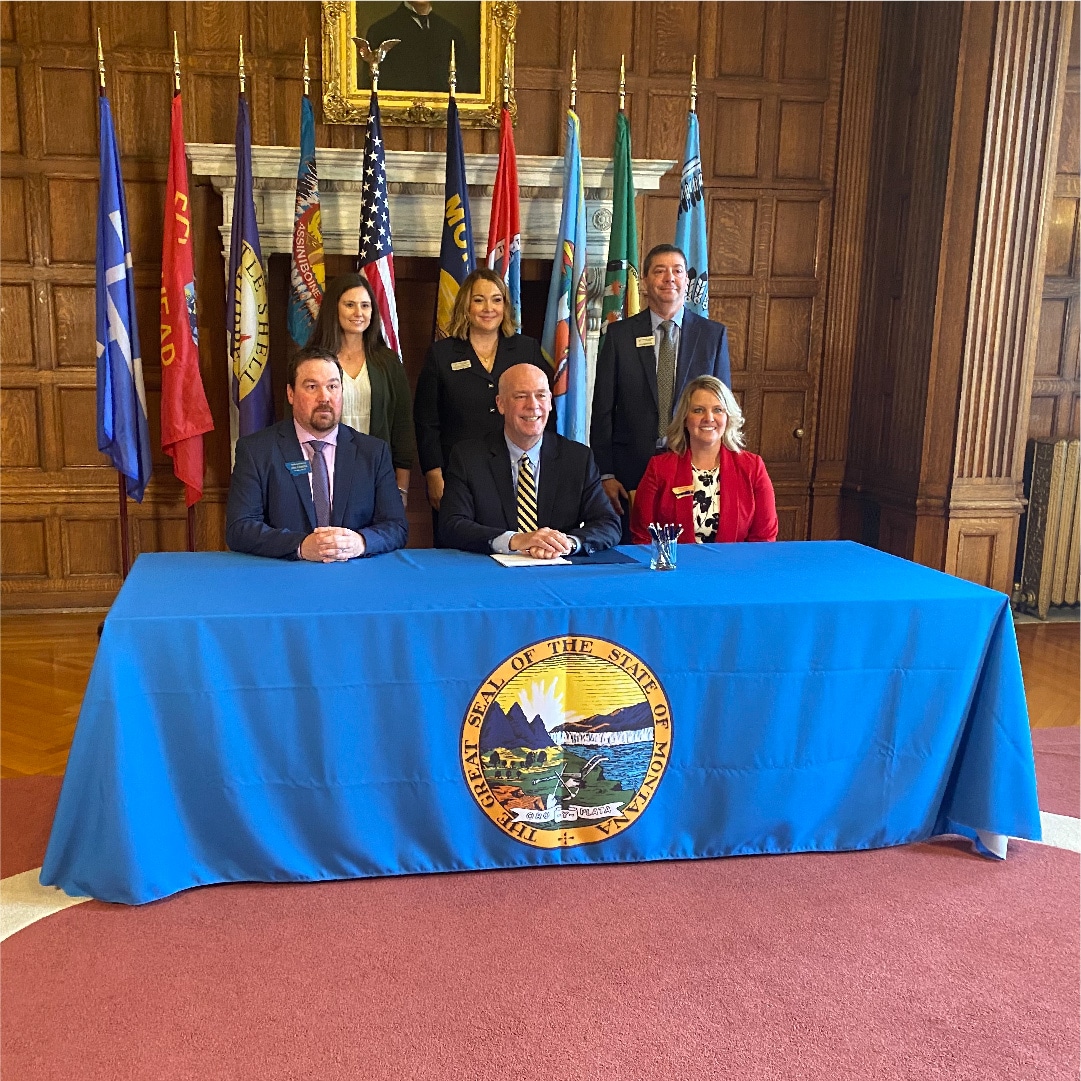Thursday, the Montana Stockgrowers Association (MSGA) joined Governor Greg Gianforte and bill sponsor, Representative Josh Kassmier, for the signing of House Bill (HB) 302. Previously, versions of this bill had been passed by the Montana Legislature in 2011, 2013, 2015, and 2019 but were all vetoed by then-Governors Brian Schweitzer and Steve Bullock. The signing of HB 302 marks an important shift in the executive branch’s priority to protect Montana’s number one industry, agriculture.
The premise of the bill is to allow local people, through their locally elected representatives, to have input as to whether or not wild bison are relocated into their county. MSGA members do not support the relocation of wild bison in Montana and are committed to being engaged in discussions about relocation. It is critical for the protection of Montana’s cattle industry that provisions within state law are upheld, especially in regard to disease control and containment measures.
“It is imperative small rural communities who would be directly impacted by bison relocation have their voices heard loud and clear above the din of people who may never even come to Montana to see bison, but just like the idea bison are here. If local residents have significant concerns about bison relocation, they shouldn’t have to bear the burden unwillingly. This bill ensures local people have a say in whether or not, or how, bison are relocated into their area,” stated Jim Steinbeisser, MSGA president.
MSGA was also successful in stopping other bison legislation that would have been detrimental to the state’s cattle industry. Brucellosis remains a major threat to cattle producers in Montana and MSGA stood firm that any deviation from the state’s current disease management control’s could have significant economic ramifications for the industry.
MSGA thanks Governor Gianforte for his support of HB 302 and Representative Kassmier bringing the bill.
The Montana Farm Bureau Federation was also a strong proponent of HB 302. MFBF Senior Governmental Affairs Director Nicole Rolf commented that, “For over ten years now, our members have been very concerned about public entities trying to force wild bison onto the landscape and have been adamantly opposed to such an action. The addition of wild bison onto the range threatens ranchers by adding a large species that will compete for scarce resources like water and grass, damaging crops, fences and other property, and running the risk of spreading disease. HB 302 gives county commissioners, the elected officials closest to the citizens, a say in whether or not wild bison can be established in their communities. We are pleased that ranchers and farmers now have more certainty that their property rights will be protected .”
“We appreciate the persistence and leadership of Senator Lang and Representative Kassmier on this and many other important issues this session. We also thank the governor for helping us put a period on the end of this wild bison sentence,” Rolf concluded.
The Governor may yet take action on another bill dealing with wild bison. House Bill 318, that clarifies the definition of wild bison, passed third reading in the Senate this week and has been sent to enrolling.
Sponsored by Rep. Kenneth Holmlund (R), HD38, the legislation clarifies that wild bison are defined as those animals that have never been reduced to captivity, have never been subject to per capita fees and have never been owned by a person. These clarifications are intended to clear up any ambiguity between wild bison and bison as livestock.
A similar bill was passed by the Montana legislature in 2019, but that bill was also vetoed by former governor Steve Bullock.
###
MSGA/NAN


